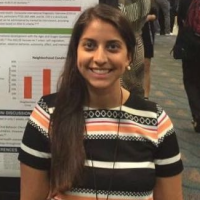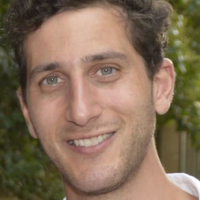Fellows and Students
Postdoctoral Fellows
Emilie Bruzelius, PhD
Emilie Bruzelius,PhD is a post-doctoral research fellow in the Department of Epidemiology. Her research integrates approaches from epidemiology and data science to examine how social policies influence health outcomes with a focus on substance use and health disparities. Emilie is currently working on research that examines the joint effects of cannabis and prescription opioid legislation on chronic pain and substance use outcomes under Dr. Silvia Martins. Her dissertation research explores intersections between the opioid crisis, criminal justice policies and child welfare outcomes. Prior to joining the doctoral program, Emilie worked as an Epidemiologist and Data Scientist in a variety of health research settings. She completed an MPH in the Department of Sociomedical Sciences and received advanced training Data Science in the Data Science Institute, both at Columbia University; she studied Sociology as an undergraduate at Brandeis University.

Luis Segura, MD, MPH, DrPH
Luis E. Segura, MD, MPH, DrPH, is a postdoctoral research fellow in the Department of Epidemiology. His research focuses on applying causal inference methods to investigate racial/ethnic and gender inequalities in cannabis and opioid use, as well as use disorders, and the impact of drug policies on these outcomes. Luis’s current work examines the effect of opioid policies on opioid-related outcomes in pregnant individuals (including use, use disorder, and access to treatment) and adverse neonatal outcomes. His dissertation adapted econometric methods within the potential outcomes framework to test the main expectations of the theory of deaths of despair—whether rising prevalences of despair led to increased drug overdoses, suicides, and alcohol-related death rates exclusively among white Americans in midlife. Prior to completing his doctoral program, Luis worked as an epidemiologist and medical practitioner in Monterrey, Mexico. He completed an MPH in the Department of Epidemiology at the National Institute of Public Health in Mexico and obtained an MD degree from the Autonomous University of Nuevo Leon (UANL) in Monterrey, Mexico.

Nicole Fitzgerald, PhD
Nicole Fitzgerald, PhD, is a SAETP post-doctoral research fellow in the MSPH Department of Epidemiology. Her current research focuses on identifying patterns and trends in opioid-stimulant polysubstance use and related outcomes. She received her PhD in Epidemiology from the University of Florida, where she was supported by the NIDA T32 University of Florida Substance Abuse Training Center in Public Health. As a pre-doctoral fellow, her research examined indicators of emerging substance use, availability, and associated harms––particularly those involving fentanyl, hallucinogens, and new psychoactive substances––as part of the NIDA-funded National Drug Early Warning System (NDEWS) U01 center. Her dissertation used data collected through NDEWS to examine the prevalence, typologies, and associated adverse effects of self-reported new psychoactive substance use. Prior to her PhD, she completed her BA in Psychology from Florida Atlantic University.

Kechna Cadet, PhD, MPH
Kechna Cadet, PhD, MPH (she/her) is a NIH T32 SAETP Postdoctoral Research Fellow in the Department of Epidemiology at Columbia University Mailman School of Public Health. Dr. Cadet’s research explores the impact of social contextual determinants on substance use and negative health outcomes among marginalized communities. Dr. Cadet received her PhD from Johns Hopkins Bloomberg School of Public Health and received her training and funding from the NIH T32 Drug Dependence Epidemiology Training program. Her dissertation used multi-level latent variable modeling and social epidemiological theories to examine the impact of structural contextual factors (e.g., residential segregation, income inequality, area deprivation, exposure to violence, spatial access to drug-related programs) on polysubstance use typologies and distal outcomes of HIV, HCV, and non-fatal overdose among people who inject drugs. Dr. Cadet earned her MPH in Community Health and Social Sciences from CUNY Graduate School of Public Health and Health Policy and received her B.S. in Psychology from Drexel University.

Evan Eschliman
Evan L. Eschliman, PhD, MS is a SAETP postdoctoral research fellow in the MSPH Department of Epidemiology. Broadly, Evan’s research focuses on the negative health effects of stigma—particularly structural stigma—and culturally and structurally-responsive stigma intervention. Their current projects investigate how structural stigma toward substance use drives health inequities and overdose. Evan completed their PhD in the Department of Health, Behavior and Society at the Johns Hopkins Bloomberg School of Public Health, where their dissertation focused on the concept of structural stigma and how it negatively affects the health and well-being of people who use opioids and people with a history of injection drug use. Prior to their PhD, Evan earned their MS in Sociomedical Sciences from MSPH and a BA in Public Policy Studies from the University of Chicago.

Predoctoral Students
Megan Marziali, MPH
Megan Marziali, MPH, is an SAETP pre-doctoral fellow in the MSPH Department of Epidemiology. Her research primarily focuses on psychosocial factors, social networks, and substance use, with current work exploring partner incarceration and maternal substance use and the impact of endometriosis on risk substance use. Her previous work investigated topics such as state- and national-level policies during COVID-19, and the impact of loneliness and social isolation among people living with HIV in Canada. Megan received her BSc in Microbiology and Immunology from the University of British Columbia and completed her MPH in Epidemiology at the Mailman School of Public Health in 2021.

Amy Pitts
Amy Pitts is a SAETP pre-doctoral fellow in the Department of Biostatistics. Her research primarily focuses on causal inference approaches to enhance the external validity of clinical trials related to substance use disorders and methods to understand prenatal anesthesia exposure. In previous research, she explored the inference of health outcomes among patients with HIV during COVID-19 pandemic and used MRP model to improve survey representativeness. Amy entered into the PhD program directly after receiving her BS in Applied Mathematics and Data Science & Analytics from Marist College in 2020.

Erin Annunziato, MPH
Erin Annunziato, MPH, is an SAETP pre-doctoral fellow in the MSPH Department of Epidemiology. She is interested in researching structural-level determinants of substance use-related harms. Her current research examines relationships between state-level drug policy programs, criminal legal system exposure, and substance use treatment. Erin completed her MPH in Epidemiology at the Mailman School of Public Health in 2021.

Former Postdoctoral Fellows
Marine Azevedo DeSilva, PhD
Marine Azevedo Da Silva, PhD, was a SAETP-affiliated post-doctoral research fellow in the MSPH Department of Epidemiology, supported by the NIDA-Inserm Drug Abuse Research Fellowship. She is a social epidemiologist whose current research focuses on studying the impact of policies and social environments on adolescent substance use, substance use disorders and mental health. Prior to her SAETP affiliation, she worked in the Social Epidemiology research team at the Pierre Louis Institute of Epidemiology and Public Health (France) as a postdoctoral researcher, investigating the relationship between occupational status throughout the career, psychosocial work factors and suicide risk. Dr. Azevedo Da Silva earned her PhD in Public Health with a specialization in Epidemiology from the University of Paris-Saclay (French National Institute of Health and Medical Research - Centre for Research in Epidemiology and Population Health, France). Her dissertation research focused on the impact of the antidepressant medication use on cardiometabolic risk, and was supported by a fellowship from the Doctoral School of Public Health (EDPS, France). She earned her MPH from the Paris-Sud University and her BS in Life Sciences from the Paris Descartes University in France.
![]()
Elizabeth D. Nesoff, PhD
Elizabeth D. Nesoff, PhD MPH CHES, was a SAETP post-doctoral research fellow in the MSPH Department of Epidemiology. She is a public health researcher focused on the intersection of substance use, the neighborhood environment, injury prevention, and health disparities. Her current research uses spatial analysis methods to investigate the relationship between modifiable neighborhood features and opioid overdose risk. She holds a PhD from the Department of Health, Behavior, and Society at the Johns Hopkins Bloomberg School of Public Health. Her dissertation research focused on the impact of the alcohol environment on pedestrian injury risk, and was supported by a Ruth L. Kirschstein National Research Service Award from the National Institute on Alcohol Abuse and Alcoholism. Prior to completing her doctoral training, Dr. Nesoff worked at the Centers for Disease Control and Prevention as a research fellow with the Division for Heart Disease and Stroke Prevention and as a health communication fellow in the National Center for HIV/AIDS, Viral Hepatitis, STD and TB Prevention. Dr. Nesoff earned an MPH from the Emory University Rollins School of Public Health, and a BA from Wellesley College.

Hillary Samples, PhD
Hillary Samples, PhD MHS, was a SAETP post-doctoral research fellow in the MSPH Department of Epidemiology. She has worked with national data and large health care databases to identify risk factors for substance use problems, analyze patterns of prevention and treatment services, and evaluate the impact of policies by assessing trends in services and outcomes. Her current projects examine the clinical epidemiology of opioid-related problems and treatment, including studies of adverse opioid-related outcomes and patterns of medication treatment for opioid addiction among Medicaid enrollees. Dr. Samples earned her PhD in Health Services Research and Policy from the Department of Health Policy and Management and her MHS from the Department of Mental Health at the Johns Hopkins Bloomberg School of Public Health. Prior to completing her graduate training, she earned her BA in Psychology from the University of Virginia and worked as a clinical research coordinator and psychometrist at the University of Virginia Health System.
![]()
Priscila Dib Gonçalves, PhD
Priscila Dib Gonçalves, PhD, was a SAETP affiliated post-doctoral research fellow in the MSPH Department of Epidemiology. She is interested in examining correlates and trends of simultaneous use of alcohol and cannabis. Prior to joining the SAETP, she worked as a clinical and research psychologist at the Institute of Psychiatry, Medical School, University of Sao Paulo (Brazil). Dr. Goncalves earned her Ph.D. from the Department of Psychiatry, School of Medicine, University of Sao Paulo (Brazil) with sponsorship from Brazilian state and federal financial agencies. Her dissertation focused on a novel cognitive intervention combining chess game and motivational interview in individuals with cocaine dependence. After completing her Ph.D., she was a visiting scholar at University of California, San Diego (UCSD), sponsored by the Brazilian government, investigating alcohol use disorder (AUD) course and alcohol-related problems, particularly alcohol-related blackouts.

Jose Diaz, PhD
José E. Diaz, PhD, was a SAETP post-doctoral research fellow in the MSPH Department of Epidemiology. He is interested in examining how larger social and political contexts (e.g., public health policies, neighborhood environments) contribute to sexual minority health disparities. In particular, he is interested in utilizing national data to deepening our understanding of the substance use disparities that exist among sexual minority populations. He completed his doctoral studies in sociomedical sciences with a concentration in psychology at Columbia University in February of 2018. His dissertation work explored how cultural (e.g., acculturation), neighborhood (e.g., ethnic density), and syndemic factors (e.g., substance use) contribute to HIV-related risk among Latino men who have sex with men (MSM). His dissertation work was nominated for the Marisa de Castro Benton Dissertation Award in Sociomedical Sciences for its outstanding contribution to the field. Prior to his doctoral training, Dr. Diaz taught high school English in Spain through a model United Nations curriculum focused on population health and inequality.

João Mauricio Castaldelli-Maia, MD, PhD
João Mauricio Castaldelli-Maia, MD, PhD, is a post-doctoral research fellow in the Department of Epidemiology, supported by the National Institute on Drug Abuse (NIDA) International Program INVEST Drug Abuse Research Fellowship. He will link five different databases to investigate determinants of fatal opioid polydrug overdoses over a 10-year period. He will use a mixed ecological design, mixing multigroup ecological analyses and time trends, as well as a type of machine learning to identify clusters at the U.S. county level. Prior to his Columbia affiliation, he worked in Brazil as an Assistant Professor at the Department of Neuroscience, ABC Health University Center, and as a PhD Supervisor at the Institute of Psychiatry, University of São Paulo. Dr. Castaldelli-Maia earned both his MD and PhD from the Medical School, University of São Paulo. He is an editorial board member of International Review of Psychiatry, International Journal of Social Psychiatry, Global Psychiatry, Current Drug Research Reviews, Revista Paraguaya de Psiquiatria, and Medicina Clincia y Social. He published more than 100 papers and edited two books.

Former Doctoral Students
Melanie Askari, MPH
Melanie Askari is an Epidemiology Doctoral student at Columbia Mailman School of Public Health. Her current research focuses on policy impacts on opioid and overall substance use treatment utilization. She is also interested in the intersection of mental health and substance use, social epidemiology, and health disparities. She has worked at the New York City Department of Health and Mental Hygiene (DOHMH) to evaluate a program called the Mental Health Service Corps which aims to increase behavioral health capacity across NYC. During her time at DOHMH, she worked with a variety of data sources including the NYC Community Health Survey, census data, various program-specific evaluation surveys, electronic health record data from primary care practices in NYC, and a NYC primary care provider survey. She has a particular interest in using data visualization and clear communication to tell a compelling story and impact programming and policy changes. She received an MPH from Mailman in 2016 where she studied Epidemiology with a certificate in Global Health.
![]()
David Fink, MPH, MPhil
David Fink, MPH, MPhil is A SAETP pre-doctoral fellow and PhD candidate in Epidemiology at Mailman School of Public Health. He is interested in the influence of social arrangements and interactions on population health. He is a social epidemiologist who has worked extensively with various branches of the military (i.e., US Army, Navy, Marine Corp, National Guard and Reserves) to investigate the psychological sequela of combat using a life course perspective. His primary focus is on (i) the etiology of mental disorders, particularly substance use disorders; (ii) the extension of quantitative methods to estimate the health effects of policies and programs with a goal of (iii) improving population health through evidence-based policy. He is the past president of the Society for Epidemiological Research Student Postdoc Committee. David has published over 40 articles, half of which were first-authored, and 4 book chapters.

Natalie Levy, MPH, MPhil
Natalie Levy, MPH, MPhil is a doctoral student and graduate research assistant in the Department of Epidemiology at the Columbia University Mailman School of Public Health. Prior to beginning the doctoral program, Natalie worked at the New York City Department of Health and Mental Hygiene for several years where she developed expertise in managing and analyzing large datasets, study design, and program evaluation. Natalie’s current work focuses on early-life predictors of gambling and problem gambling; the effects of medical marijuana laws on patterns of cannabis use and perceptions; and epidemiologic methods.

Alexander Perlmutter, MPH
Alexander S. Perlmutter, MPH, is a SAETP pre-doctoral fellow in the MSPH Department of Epidemiology. His research interests include methodological issues vis-à-vis addiction studies and the social determinants and consequences of addictive behaviors. He has worked with national data sets to measure relationships between prescription opioid use, employment, and age over time, how medical marijuana law enactments are related to knowledge of said laws, and how race modifies the relationship between marijuana use and arrest over time. He completed his MPH in the MSPH Department of Epidemiology in 2016. Alex has also worked in the Centre de Recherche d’Épidemiologie et Statistique Sorbonne Paris Cité, where he studied methodological problems in conducting health research. His projects there range from assessing primary outcome modifications in oncology clinical trials to evaluating the evidence base of mobile applications meant to curb substance use problems.
![]()
















